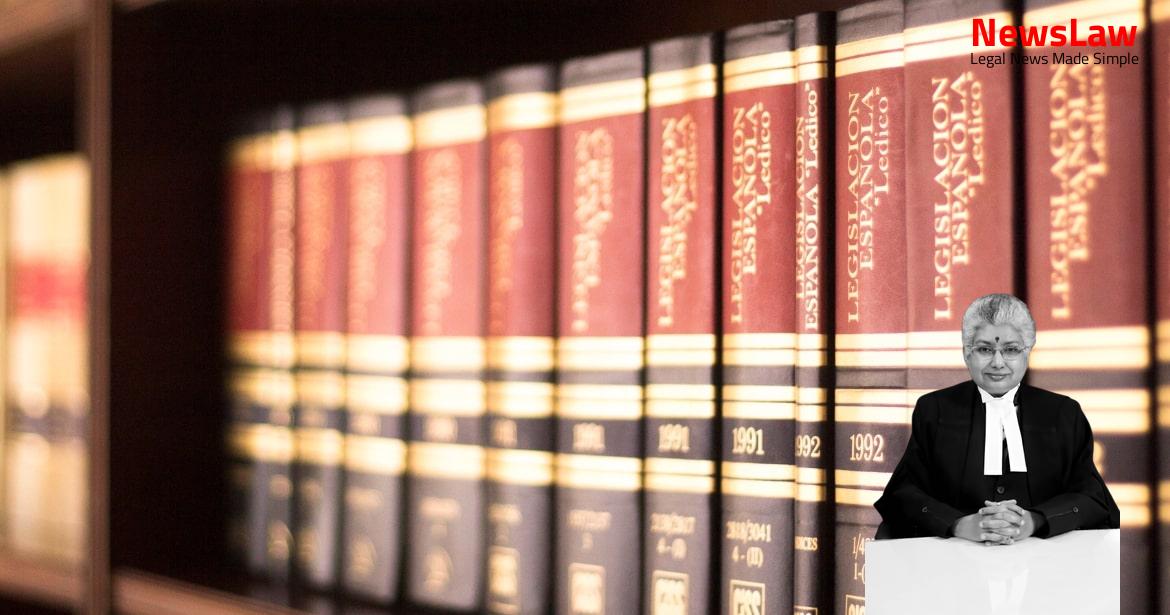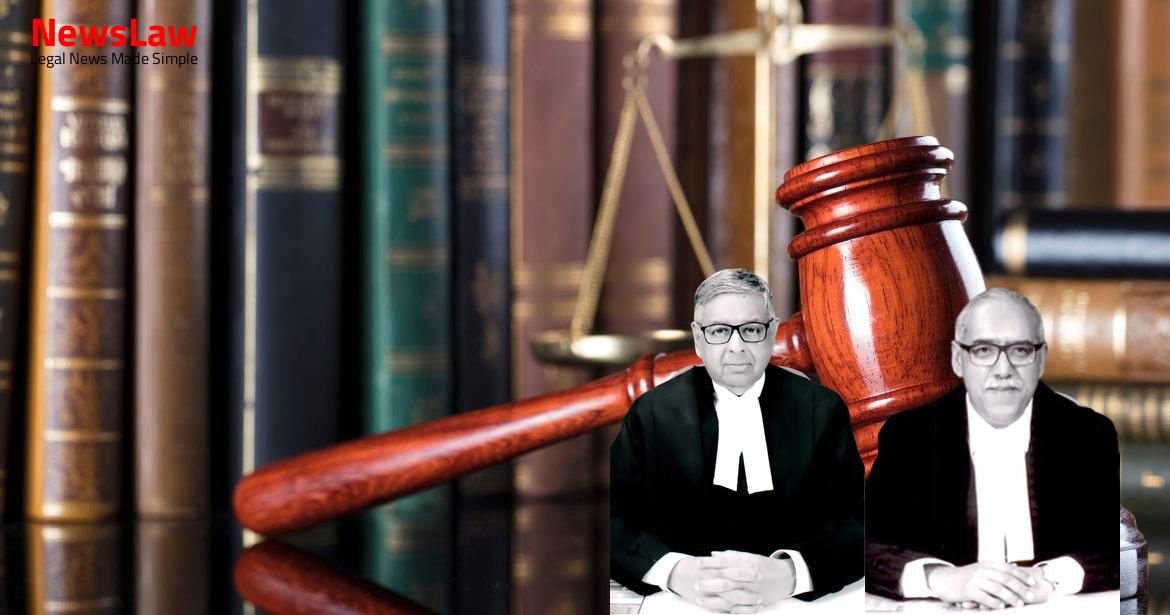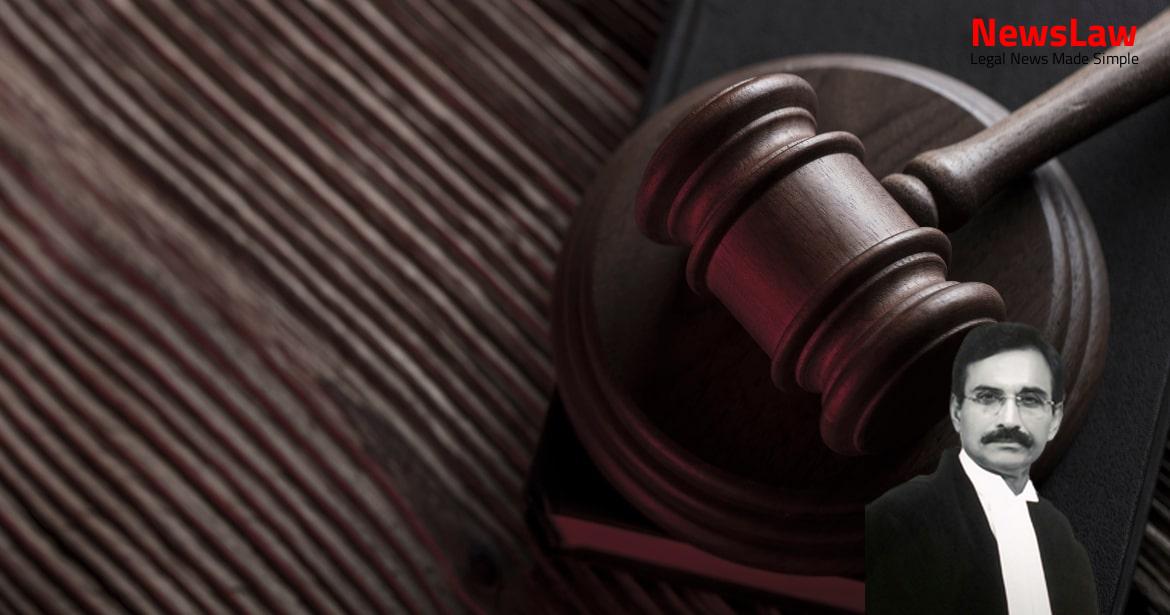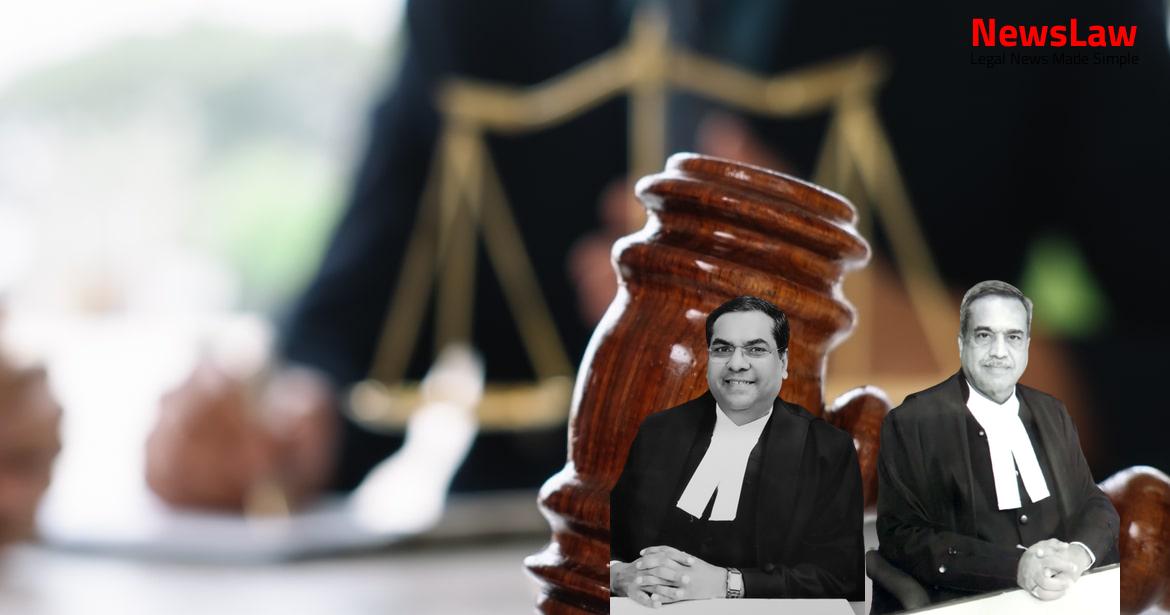In a recent property dispute case, the court delved into the essential aspect of determining necessary parties in legal proceedings. The court’s analysis highlighted the significance of proper party joinder for the effective adjudication of disputes. Stay tuned to unravel the legal insights and implications of this crucial aspect in the realm of property law.
Facts
- Plaintiff paid Rs.24,000/- on the date of the agreement and defendant executed an earnest note.
- Defendant suggested selling part of the house to Plaintiff due to financial need.
- Agreement to sell the property for Rs.50,000/- was entered into on 24 July 1984.
- Plaintiff informed defendant of willingness to complete the transaction before 31 March 1985.
- Plaintiff paid an additional Rs.6,000/- on 31 July 1984.
- Defendant alleged the transaction was for money lending and denied executing the sale deed.
- Plaintiff, a doctor working in a Government Hospital, filed a suit for specific performance.
- Trial court decreed the suit and directed the defendant to execute the sale deed by accepting the balance sale consideration as per the agreement.
- Defendant appealed to the Appellate Court, but the appeal was dismissed.
- Defendant then appealed to the High Court.
- High Court partially allowed the appeal.
- Specific performance was denied by the High Court.
- Defendant was directed to refund Rs.30,000 with 9% interest from the date of the institution of the suit.
Also Read: Presumption of Genuine Endorsements in Cheque Case
Arguments
- The petitioner argued that the suit was not maintainable due to the non-joinder of other owners of the property.
- They contended that a mere agreement to alienate cannot be enforced against a son based on antecedent debts of the father.
- The plaintiff admitted in the plaint that the property was owned by the defendant, his wife, and their three sons.
- The defendant entered into the agreement to sell the property for farming and household expenses.
- It was asserted that since the contract was between the plaintiff and the defendant, joining other family members as defendants was unnecessary.
- The petitioner disagreed with the High Court’s consideration of the joint ownership of the property by the defendant, his wife, and sons, citing a legal precedent that only contracting parties are necessary in such cases.
- They argued that the High Court should not have overturned the concurrent findings of the trial court and the Appellate Court regarding the nature of the transaction and ownership of the property.
- Lastly, it was contended that the High Court’s finding that the property belonged to the joint family of the defendant, his wife, and sons, was not supported by the facts.
- The defendant borrowed Rs.24,000 and Rs.6,000 from the plaintiff for personal purposes.
- The defendant’s wife and sons had no involvement in the borrowed amount and it was spent solely by the defendant.
- The defendant argued that the suit should be dismissed due to non-joinder of necessary parties, specifically his wife and sons.
- The defendant claimed that his sons managed their own properties independently, and he was not responsible for their properties or debts.
- The plaintiff acknowledged in the plaint that the defendant, his wife, and sons constituted a joint Hindu family under Bombay School of Hindu Mitaksharia Law.
- The plaintiff stated that the defendant faced financial difficulties in July 1984 and required money for cultivation and household expenses.
- The defendant argued that deeming transactions as approvals from his sons in the absence of their involvement was fictional.
- The defendant contended that the suit could not be decreed on fictions and was not tenable without necessary parties.
- The defendant’s appeal was unsuccessful as the Appellate Court held that the trial court erred in not recognizing the joint property status of the disputed property.
Also Read: Medical Negligence and Compensation: A Landmark Decision
Analysis
- The suit property was jointly owned by the defendant along with his wife and three sons, necessitating their joinder as necessary parties.
- The trial court’s decision that the defendant was the absolute owner of the suit property was incorrect, as it was jointly owned.
- Despite objections raised by the defendant and the necessity of joinder of his wife and sons, the plaintiff did not implead them.
- The Appellate Court also refuted the notion that the suit property belonged exclusively to the defendant.
- A ‘necessary party’ is defined as a person whose absence would prevent the court from passing an effective decree.
- For a person to be considered a necessary party, two tests must be satisfied: (1) there must be a right to some relief against such party in respect of the controversies involved in the proceedings, and (2) no effective decree can be passed in the absence of such party.
- A proper party is a party who, though not necessary, is a person. If a person is not found to be a proper or necessary party, the court cannot implead him against the wishes of the plaintiff.
- In the case of Mumbai International Airport Private Limited, it was stated that a necessary party is one who ought to have been joined as a party, and without whom no effective decree could be passed. Failure to implead a necessary party may lead to the dismissal of the suit.
- Plaintiff admitted the suit property was jointly owned by defendant, his wife, and three sons
- No effective decree could be passed without the presence of all parties
- No error found in the judgment of the High Court
Also Read: Remand of Writ Petition for Restoration and Decision on Merits
Decision
- Appeals to be dismissed as liable
- Result: Appeals dismissed, no order as to costs
- High Court partly decreed suit, defendant directed to refund Rs.30,000 with 9% interest
- Pending applications disposed of accordingly
- Direction of the High Court affirmed
Case Title: MORESHAR YADAORAO MAHAJAN Vs. VYANKATESH SITARAM BHEDI(D) TR.LRS. (2022 INSC 1027)
Case Number: C.A. No.-005755-005756 / 2011



